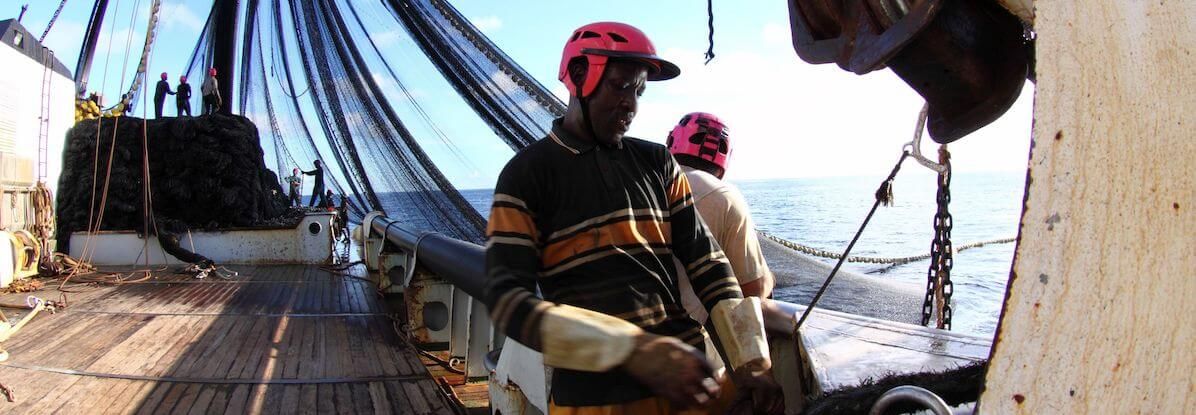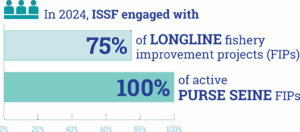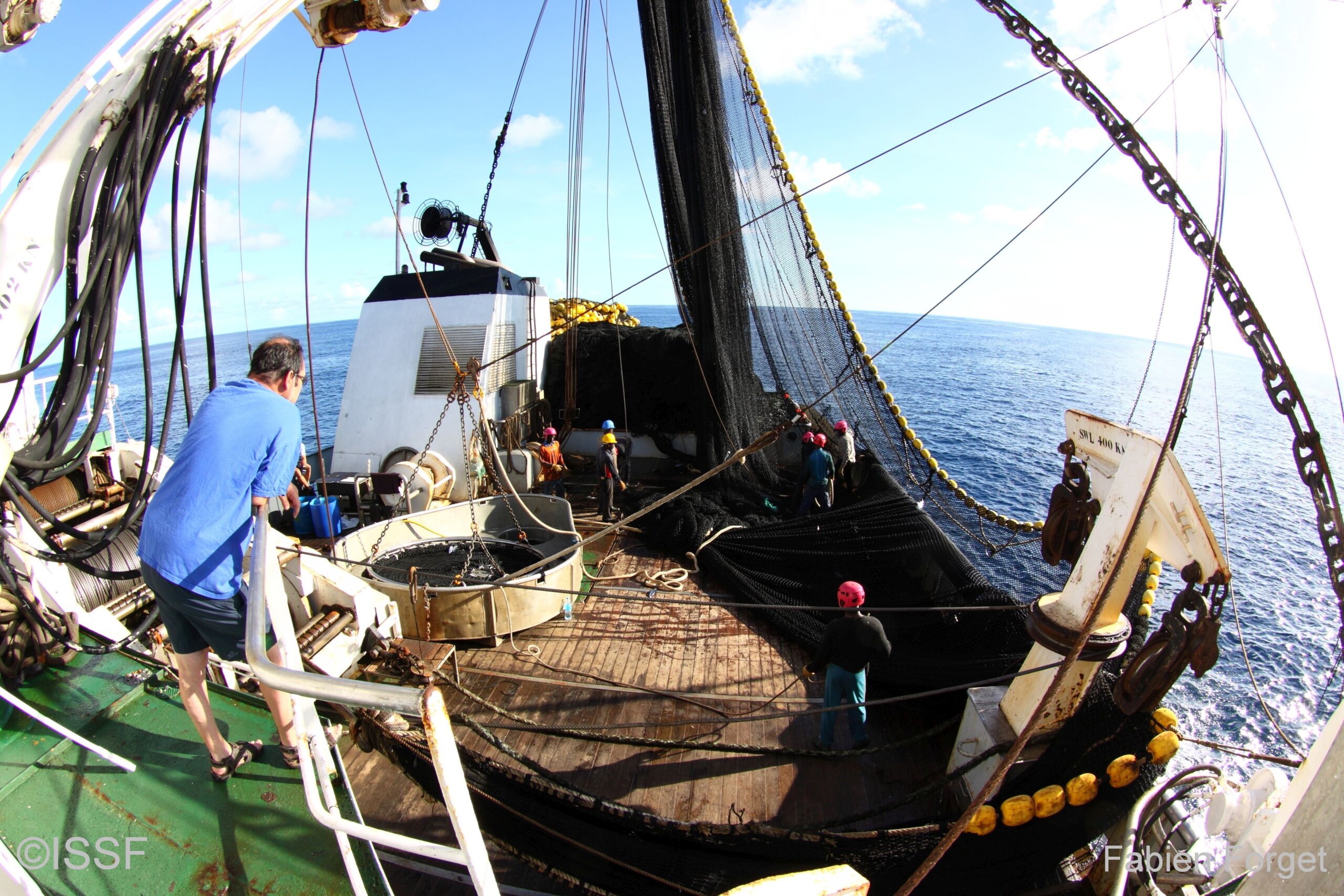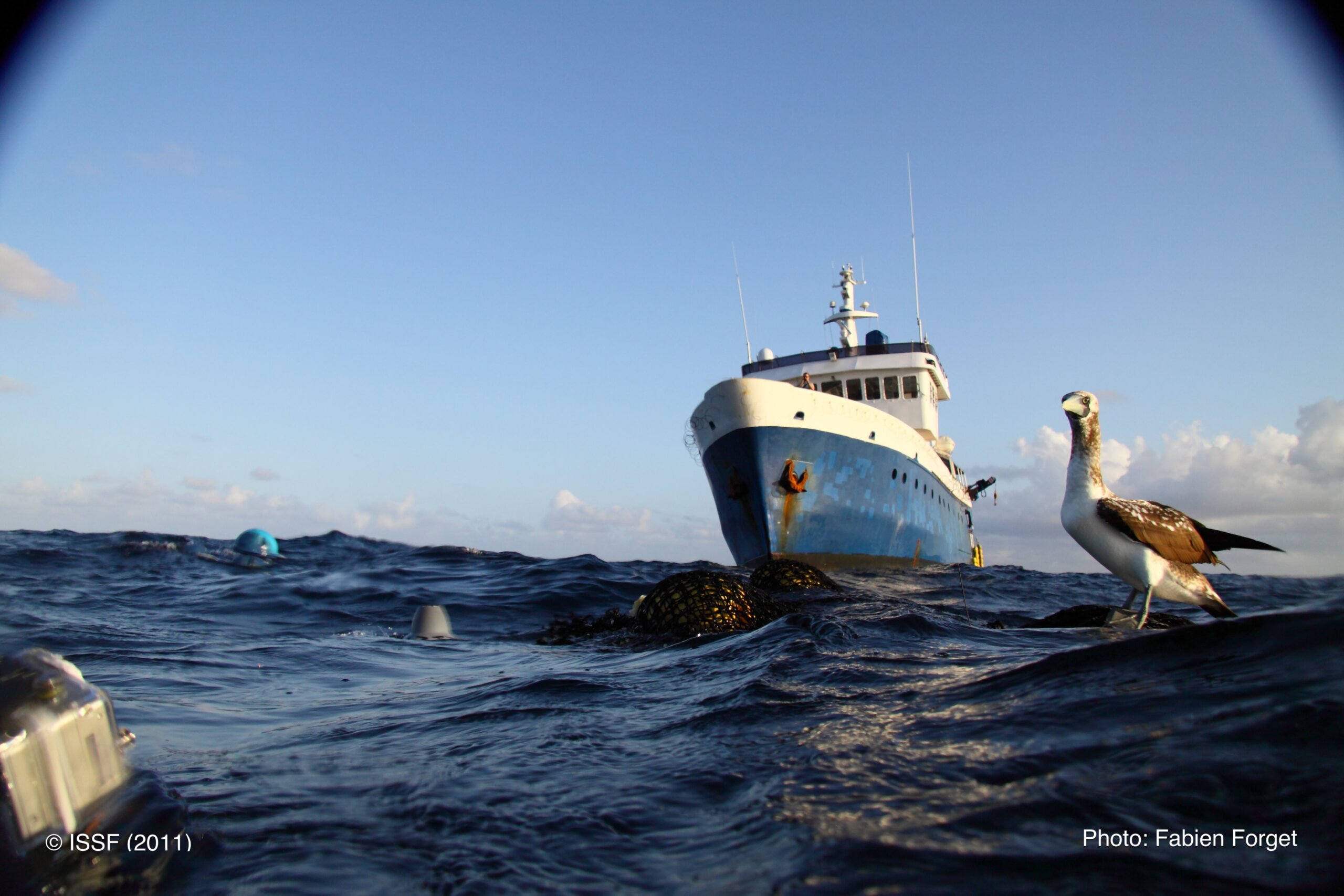
ISSF FIP Resources
To assist tuna Fishery Improvement Projects (FIPs), including those focused on Marine Stewardship Council (MSC) fishery certification, ISSF offers a variety of resources.
ISSF support is intended to complement — not replace — the assistance that other NGOs and stakeholders provide to tuna FIPs.

Online Resources for FIPs
Our online resources encompass the ProActive Vessel Register and other vessel lists, scientific and best-practices reports, guides, advocacy materials, and more. To locate resources that match your FIP needs, use our FIP Resources Finder.

Technical Services for FIPs
Our technical services for FIPs may include consultations, workshops, and customized recommendations — including scientific and policy guidance from ISSF experts. To inquire about technical services, use our FIP Support Form.
Our Unique Focus
ISSF focuses primarily on sustainability in tuna fisheries, encompassing tuna conservation, bycatch reduction, marine ecosystem health, and other key issues.
Tuna is one of the most important seafoods. In 2023, commercial fishing vessels caught about 5.2 million tonnes of tuna.
ISSF Support & the FIP Process
Whether you are contemplating entering a FIP or are well along in the process, ISSF can help to support your improvement activities. We can assist handline, pole-and-line, longline, and purse seine fisheries of every scale, anywhere in the world, offering deep expertise and connecting stakeholders across the seafood sustainability spectrum.
ISSF does not fund, manage, organize, coordinate, or govern FIPs, however. We also do not author FIP workplans, but you can find workplan templates and tools on other sites.

Resources & MSC Performance Indicators
Our FIP Resources Finder suggests ISSF resources, publications, and tools for your FIP based on the MSC Principles and Performance Indicator(s) (PIs) you are focused on improving.
This graphic shows the Principles and PIs in MSC Fisheries Standard, which are used to assess fisheries for certification.
Fisher Best-Practices Resources
In addition to advocating best practices in fisheries management to RFMOs — through reports, snapshots, and other materials — ISSF develops best-practices resources for fishers, including skippers workshops and guidebooks and an illustrated guide for building Fish Aggregating Devices (FADs) that are both non-entangling and biodegradable.
Longline Fishery Guidelines
An ISSF team studied tuna longline fishery improvement project (FIP) action plans — and identified their most common weaknesses as benchmarked to sustainability best practices.




